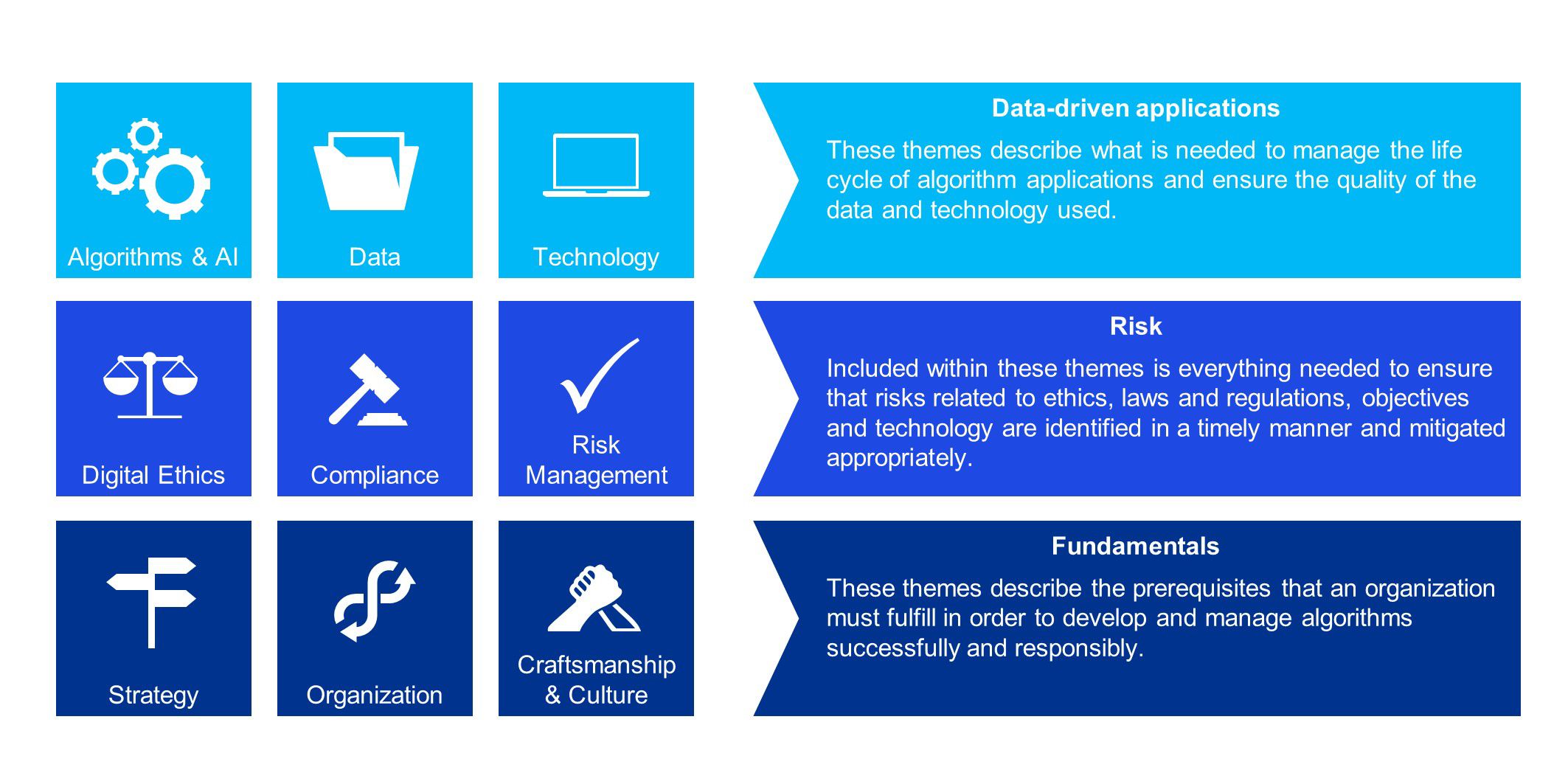The increasing adoption of artificial intelligence (AI) is creating new challenges around the trusted use of data and AI. While the use of data and AI provides many opportunities, it also comes with risks in operational and ethical areas, among others.
KPMG Responsible AI offers services aimed at implementing data analytics and AI in a controlled manner, without compromising on innovation. Responsible AI contributes to exposing vulnerabilities and risks and establishing AI governance, where (data) ethics play a central role. In this way, we provide organizations with insight, create trust in AI and enable the full potential of AI.
Trust in algorithms
Our vision of AI Governance is based on nine dimensions: Algorithms & AI, Data, Technology, Digital Ethics, Compliance, Risk Management, Strategy, Organization and Craftsmanship & Culture. These dimensions are central to embedding trust in algorithms within organizations. View the AI governance model below to gain more insight into each component.
Ready for the next step in analytics and AI
To get your organization ready for the next step in analytics and AI, we have developed the solutions below.


KPMG has years of experience in Digital Ethics and helps organizations with correct insights into the growing and complex landscape of ethical frameworks and legislation on data and algorithms.
We strive to ensure that through our real solutions, your data and algorithms not only comply with relevant regulations, but are also ethical. Together, we create a just and better digital future for all.
Want to learn more? Contact our specialists directly.
Featured
Latest insights
Contact
Kaylon Solomons
Manager
Governance, Risk and Compliance Services






